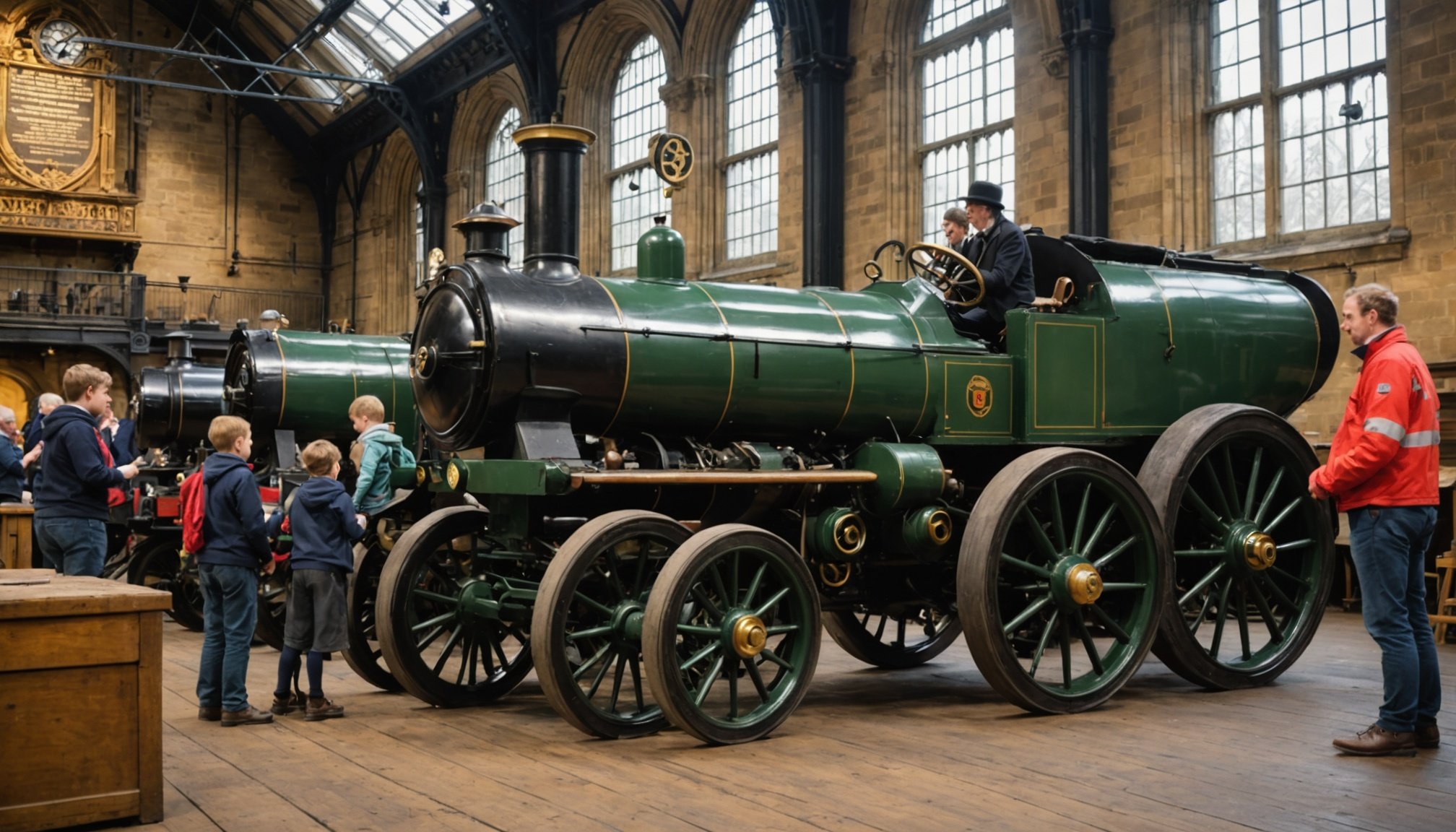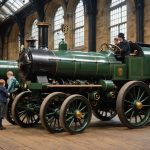Engaging Interactive Workshops
Interactive workshops offer an innovative way to delve into various engineering themes. These sessions are meticulously designed to transform hands-on learning into an engaging, educational journey. Through these workshops, participants can immerse themselves in practical activities that make complex engineering concepts more tangible and accessible.
Each workshop explores different aspects of engineering, ensuring a well-rounded educational experience. For instance, one might focus on hands-on learning in structural engineering, allowing participants to understand the principles of stability and design through interactive models. Another might delve into electrical innovations, where attendees can experiment with circuits and learn firsthand how electrical systems are constructed and function.
Also read : Explore baths of caracalla tickets for a roman adventure
The educational experiences gained from these workshops can significantly enhance a participant’s understanding of engineering principles. By engaging directly with the materials and processes, attendees can achieve a deeper level of comprehension. Furthermore, these sessions can ignite a passion for engineering, potentially inspiring the next generation of engineers. The balance of theory and practical application ensures that each attendee leaves not only with knowledge but with confidence in their understanding and abilities.
Overview of British Engineering History
British engineering history is filled with impressive engineering milestones that have left an indelible mark on global innovation. The Industrial Revolution, which originated in Britain, was a period when engineering saw revolutionary progress, paving the way for modern society. Landmark achievements include the creation of the first railway locomotives by George Stephenson, often hailed for his pioneering work in rail transport.
In parallel : Uncover the hidden gems of oxford: a journey through british literary heritage
Key notable figures such as Isambard Kingdom Brunel made significant contributions with his design of the Great Western Railway, as well as numerous bridges and tunnels. These innovations were not only significant in Britain but set standards worldwide. The engineering of the Thames Tunnel by Marc Isambard Brunel, the world’s first underwater tunnel, highlights the historical significance of British engineering.
Moreover, British engineering played a vital role in shaping the modern world by advancing mechanical design, naval architecture, and aeronautics. This legacy of innovation continues to inspire and drive contemporaneous advancements in the field. Understanding British engineering’s historical context allows for a deeper appreciation of its lasting impact and continued relevance in today’s technological landscape.
Themes Explored in Workshops
Explore engineering themes in our workshops, offering diverse and enriching experiences. Attendees dive into thematic sessions, each with unique workshop topics and distinct learning outcomes.
Workshop on Structural Engineering
In the Structural Engineering Workshop, participants engage in interactive activities that illuminate principles of stability and design. Through hands-on modeling, they appreciate construction dynamics, understanding how materials and methods ensure structural integrity. This workshop equips attendees with a clearer concept of real-world engineering applications, enhancing practical comprehension.
Workshop on Electrical Innovations
The Electrical Innovations Workshop is designed for participants to experiment with circuits and explore electrical systems. By constructing and testing simple circuits, individuals grasp the fundamental principles of electricity. This direct interaction with technology fosters confidence in dealing with electrical challenges and inspires further exploration in the electrical engineering field.
Workshop on Mechanical Design
In our Mechanical Design Workshop, the focus is on mechanical principles and designing functional models. Through prototyping and testing, attendees learn about mechanical components and their functions. This workshop emphasizes the potential of mechanical innovation, enabling participants to design with creativity and precision. Each session intends to strengthen theoretical knowledge through practical application, ensuring enriched educational experiences.
Historical Context of British Engineering
The historical context of British engineering is marked by groundbreaking innovations that revolutionised various industries. British engineers have been at the forefront of engineering innovation, contributing significantly to the progress of modern technology. Notable figures such as James Watt and Sir Frank Whittle have played pivotal roles in these advancements. Watt’s improvements to the steam engine catalysed the Industrial Revolution, transforming manufacturing and transportation. Whittle’s invention of the jet engine paved the way for modern aviation.
This rich history is intertwined with key historical events that underscore the significance of British engineering. The Great Exhibition of 1851 showcased advancements and fostered global interest in British ingenuity, highlighting the nation’s engineering prowess. Dependencies such as the development of the first railway network further illustrate how engineering innovations were integral to societal growth.
The modern relevance of these historical milestones is evident in today’s interconnected technologies. Understanding this historical context enhances appreciation for the impact and progression of engineering. The legacy of British engineers continues to influence contemporary practices, driving forward technological solutions and inspiring future generations to build on a foundation of rich and significant contributions.
How to Participate in Workshops
For those excited to join these interactive workshops and delve into diverse engineering themes, a simple step-by-step guide can facilitate a smooth entry. The enrollment process is streamlined, allowing for efficient workshop enrollment.
Steps to Enroll:
-
Visit the Workshop Portal: Start by visiting the dedicated portal for detailed information on available workshops and schedules. Here, prospective attendees can explore workshop topics and identify areas of interest.
-
Select Preferred Sessions: After reviewing, select workshops that align with your interests and the educational experiences you wish to gain. Each session varies in focus, offering unique learning perspectives.
-
Complete the Registration Form: Fill out the registration form with necessary personal details. Ensure accuracy to avoid issues during processing.
-
Submit Payment: Secure your spot by submitting the required payment. Payment options are varied to cater to all preferences.
-
Confirmation and Materials: After payment, you will receive a confirmation email, including details on what materials or prerequisites you might need for the workshop.
Maximizing Engagement: Prepare ahead by reviewing introductory materials and come ready to engage actively with the hands-on learning experiences for optimal participation.
Testimonials and Case Studies
Diving into the real-world impact of our interactive workshops, let’s explore transformative participant experiences. Testimonials from past attendees highlight how these sessions offer a distinctive educational approach, blending theoretical knowledge with tangible practice. Participants frequently express appreciation for the hands-on learning that unravels complex engineering principles, making them accessible and engaging.
One such participant, Alex, shared, “The workshops elevated my understanding and passion for engineering. The balance of theory and practical experiences was unmatched.” This feedback underscores the workshops’ capacity to deepen comprehension through immersive activities.
Case studies further illustrate the enriching journey of these workshops. A study of a cohort engaged in the Electrical Innovations Workshop revealed a significant increase in confidence when handling circuit-based projects. The interactive and thematic nature of these workshops directly contributed to their growth and expertise.
These testimonials and stories encapsulate the workshops’ success in nurturing a robust understanding of British engineering. Participants leave not only knowledgeable but inspired to apply their newfound skills and insights. The positive impacts echo through their enhanced appreciation and enthusiasm for the field.











